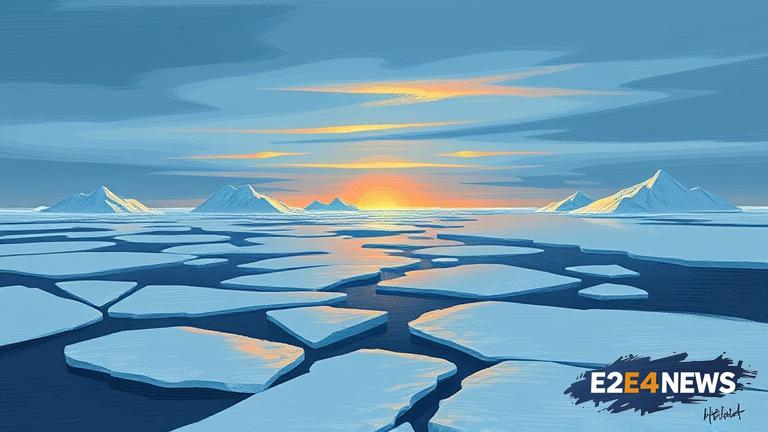The Arctic Ocean, a pivotal component of the Earth’s climate system, has been at the forefront of scientific research in recent years. As the planet grapples with the challenges of global climate change, understanding the Arctic Ocean’s climate history is essential for predicting future changes. However, reconstructing the Arctic Ocean’s past climate has proven to be a complex task, with various studies yielding conflicting results. To address this issue, a team of international scientists has come together to find consensus on the Arctic Ocean’s climate history. By synthesizing data from multiple sources, including sediment cores, ice cores, and instrumental records, the researchers aim to create a comprehensive and accurate picture of the Arctic Ocean’s climate evolution. The study focuses on the Holocene epoch, which spans from approximately 11,700 years ago to the present. During this period, the Earth’s climate has undergone significant changes, including the transition from the last ice age to the current warm period. The Arctic Ocean has played a crucial role in these changes, with its ice cover and ocean currents influencing global climate patterns. The researchers have identified several key factors that have contributed to the Arctic Ocean’s climate variability, including changes in solar radiation, volcanic eruptions, and ocean circulation patterns. By analyzing these factors, the scientists hope to gain a better understanding of the Arctic Ocean’s climate history and its impact on the global climate system. One of the primary challenges in reconstructing the Arctic Ocean’s climate history is the limited availability of data. The Arctic region is remote and inhospitable, making it difficult to collect and analyze data. However, advances in technology and research methods have enabled scientists to gather more accurate and comprehensive data, which has significantly improved our understanding of the Arctic Ocean’s climate history. The study’s findings have important implications for our understanding of global climate change. By reconstructing the Arctic Ocean’s climate history, scientists can better predict future changes and identify potential tipping points in the climate system. The research also highlights the need for continued monitoring and study of the Arctic Ocean, as its climate evolves in response to global change. Furthermore, the study demonstrates the importance of international collaboration in addressing the complex challenges of climate change. By working together, scientists from around the world can share data, expertise, and knowledge to advance our understanding of the Earth’s climate system. The Arctic Ocean’s climate history is a complex and multifaceted topic, and this study represents a significant step forward in our understanding of this critical component of the Earth’s climate system. As the planet continues to warm, it is essential that we continue to study and monitor the Arctic Ocean, to better predict and prepare for the challenges of global climate change. The research team’s findings will be published in a forthcoming paper, which will provide a comprehensive overview of the Arctic Ocean’s climate history and its implications for our understanding of global climate change. The study’s results will be of interest to scientists, policymakers, and the general public, as we all strive to better understand and address the challenges of climate change. In conclusion, the Arctic Ocean’s climate history is a vital component of our understanding of the Earth’s climate system, and continued research and study are essential for predicting and preparing for the challenges of global climate change. The international team of scientists has made significant progress in reconstructing the Arctic Ocean’s climate history, and their findings will have important implications for our understanding of the Earth’s climate system. As we move forward, it is essential that we continue to support and advance research into the Arctic Ocean’s climate history, to better understand and address the challenges of global climate change.
Mon. Nov 3rd, 2025
